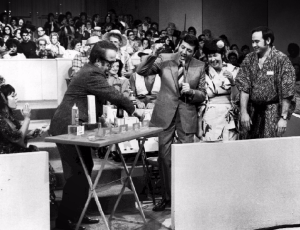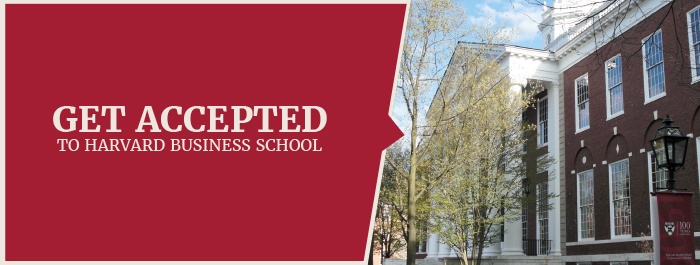 By Adam Hoff, Amerasia Consulting Group
By Adam Hoff, Amerasia Consulting Group
As we move through the winter months and host calls with b-school candidates for the upcoming cycle, it's interesting to note that some admissions questions come up a lot more this time of year than they do later. We are going to try to use that as a cue to address these types of issues and concerns here on the blog - and we are starting with a very common question this far out from the process, which is "what round should I apply in?"
THE ANSWER TO THIS QUESTION DEPENDS LARGELY ON THREE FACTORS: [/b]
Level of readiness (will you have everything done by Round 1, will have you time to put forward your best effort, are there any post-Round 1 events that would strengthen your case such that you should wait)[/*]
[*]Which schools you are applying to[/*]
[*]Your level of desire to keep your entire process "in lockstep" (having all your deadlines, interviews, decisions, etc. take place around the same time)[/*]
[/list]
We can throw out #1 for the purposes of this post, as each person is different and there is no reason trying to cover every permutation. #3 can be handled quickly. Basically, if you are someone that looks to group things up, or avoid protracted periods of ambiguity, or even just logistically have things organized, you should probably try to pick a round and apply to your schools that round, rather than spread them out or try to "game" things. If you don't care about that, or you even prefer to spread out a process, than a blend of Round 1 and Round 2 may be for you.
WITH THAT OUT OF THE WAY, HOW DO SCHOOLS PLAY A ROLE IN ALL THIS?
Basically, you want to think about the schools as belonging to three groups: "Round 1 is better", "Round 2 (possibly) is better", and "It doesn't matter."
ROUND 1 IS BETTER
In my opinion, there are five schools where it is better to apply to the earliest round (technically, we've been using "Round 1" but what this means is basically the earliest deadline). They are:
[*]Columbia Business School Early Decision[/*]
Duke Fuqua Early Decision[/*]
[*]Dartmouth Tuck Early Action (Decision)[/*]
[*]MIT Sloan Round 1[/*]
[*]Stanford GSB Round 1[/*]
[/list]
Columbia is a full-on Early Decision, and both logic and stats bear out that it's better to apply early if it's a top choice (and/or you are willing to eat a huge deposit). Duke and Tuck also have early application periods and in the case of Tuck in particular, they like to see real interest given the school's remote location, and applying early can be a good way to show that level of passion. With MIT Sloan it's more of a feel thing - because they only have two rounds, I would much rather see someone apply to the "first" rather than the "last" round.
Stanford GSB is the one where it's more nuanced. Because Stanford uses a more curatorial approach to building a class (think of most schools as customs agents stamping a long line of passports, whereas Stanford GSB is someone putting a seating chart together for a wedding reception), it follows that you want to be seen earlier in the process rather than later. This is because you run a larger risk of them already have people "like you" from Round 1 if you wait. We're obviously talking about the margins here, given the school's obscenely low acceptance rate, but then again, winning on the margins is often the key.
ROUND 2 IS (POSSIBLY) BETTER
Let's start with the EU b-schools, because these MBA programs are less controversial. Most people will tell you that being "fashionably late" with the European programs is not only acceptable, but probably better. EU programs have a ton of rounds and to apply in the very first one is not only unnecessary but also carries some risk of looking overeager.
With HBS, this take is a little more unique, but I actually believe you have a slight advantage waiting for Rd 2. I wrote about Rd 2 in general here (
https://www.amerasiaconsulting.com/blog/2015/7/15/looking-for-an-mba-advantage-consider-round-2), but will quote the relevant part about HBS:
"Display of confidence. I have seen more HBS clients of mine get in during Round 2 the last few years, honestly, and I think it's in part because it shows a really assured attitude. It's almost "I don't need to scramble around like a maniac for your increasingly, insanely early deadline. I'll lay back. I'm good." And I truly believe that confidence gets rewarded. Again, I can't prove it, so I'm not going to tell all of my HBS clients to NOT apply Round 1 ... but I truly think they might have a slightly better chance if they wait."
The idea here is that as HBS continues to test how confident and self-possessed the applicants are, the more merit there is to possibly waiting. You can let all your Type A peers rush to meet a deadline that gets earlier every year, while you hang back and show a little more confidence that your abilities and accomplishments are more than enough to carry the day. It's once again a battle on the margins, but as with GSB, that can make a difference.
IT DOESN'T MATTER
All the other schools. Seriously, you will hear them say Round 1 is better if you go to an information session before Round 1, but that is to drive applications. If you go to the same session you will hear a new spin saying how Round 2 is just as good. At every other top school in the world - I have seen no evidence (statistical or anecdotal) that there is a difference between Round 1 and Round 2.
So ... "If I am applying to Stanford AND HBS, what should I do?"
You should apply Round 1. Unless you are someone okay with spreading out your process and using multiple rounds (which means doubling the length of this ordeal, having two waves of interviews, having competing enrollment deadlines, etc.), you are going to want to apply to your schools in lockstep. And, to me, the upside of of applying Round 1 to GSB is much higher than applying to Rd 2 to HBS.
FINAL THOUGHT
It goes without saying, but we will say it anyway, that you need to apply with the best possible application. If you submit something mechanical or shoddy or lacking depth or that fails to connect with program DNA, it won't matter which round you apply.
No matter the round, we have helped more than 1000 clients successfully apply to top business schools worldwide since 2008. Let us help you figure out your next step. Schedule a complimentary, one-hour consultation with a member of our expert admissions team. Email us at
mba@amerasiaconsulting.com or visit us online at
www.amerasiaconsulting.com/contact.

 By Adam Hoff, Amerasia Consulting Group
By Adam Hoff, Amerasia Consulting Group By Adam Hoff, Amerasia Consulting Group
By Adam Hoff, Amerasia Consulting Group























